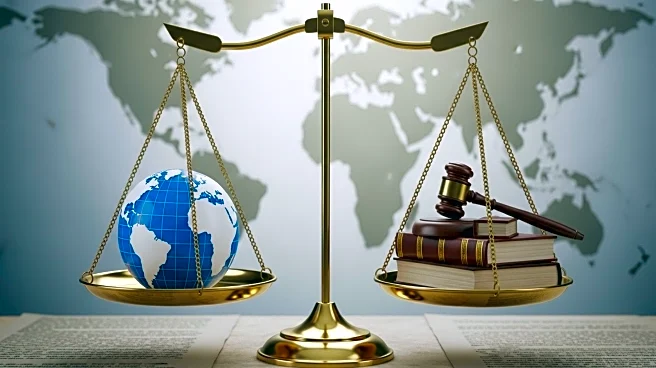What is the story about?
What's Happening?
The U.S. Court of Appeals for the Federal Circuit has ruled that most of President Trump's global tariffs are illegal, challenging the foundation of his aggressive trade policy. The court found that the International Emergency Economic Powers Act (IEEPA), which Trump used to justify the tariffs, does not grant him the authority to impose such levies. The ruling affects tariffs imposed on countries with trade deficits and those aimed at curbing drug trafficking and immigration. The decision is part of a broader legal challenge against Trump's use of IEEPA, with multiple lawsuits questioning the legality of his tariffs. The court has paused the ruling's effect until October 14, allowing time for a potential Supreme Court appeal.
Why It's Important?
This ruling represents a significant setback for Trump's trade policy, which has relied heavily on tariffs to negotiate favorable trade deals and generate revenue. The decision could lead to increased uncertainty for American businesses and consumers, as well as potential retaliation from trading partners. It highlights the constitutional limits on presidential powers, emphasizing the role of Congress in tax and tariff legislation. The ruling may also influence ongoing trade negotiations and impact U.S. strategic interests, both domestically and internationally.
What's Next?
The Trump administration is expected to appeal the decision to the Supreme Court, seeking to uphold the tariffs. The outcome of this appeal will be crucial for the future of U.S. trade policy and presidential authority. If the Supreme Court supports the lower court's ruling, it could lead to significant changes in existing tariffs and trade agreements, affecting U.S. economic and foreign policy. Businesses, policymakers, and international partners will be closely watching the developments and preparing for potential shifts in trade dynamics.
















